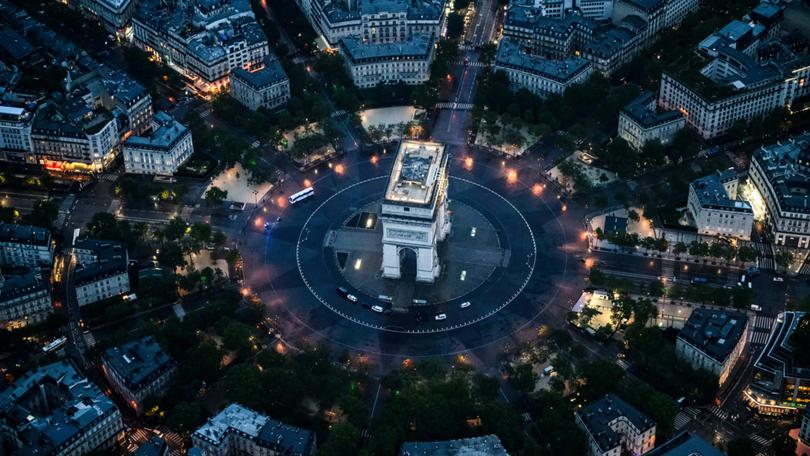Paris 2024 Olympics: Why is it so hard for host cities to control costs?
Since at least 1960, every Olympic host has spent more than planned.

Like every city that hosts the Olympics, Paris designed its opening ceremony to make a splash, with ethereal dance performances, athletes floating down the Seine and a blowout performance by Celine Dion.
A big display is table stakes, and hundreds of thousands of people jammed the city’s bridges and riverbanks for hours to cheer the flotilla.
But to make these Olympics truly unique, Paris also had something quieter in mind: It vowed to buck the decades-long trend of spending a dizzying fortune on hosting them.
Sign up to The Nightly's newsletters.
Get the first look at the digital newspaper, curated daily stories and breaking headlines delivered to your inbox.
By continuing you agree to our Terms and Privacy Policy.That vision for a budget-conscious Olympics does not seem to have panned out.
The tab for the Games in Paris, the first city to fully test cost-cutting reforms that the International Olympic Committee introduced in 2019, is at least $8.87 billion.
That isn’t an eye-popping bill compared with the $17 billion that London spent in 2012, the estimated $28 billion that Tokyo spent in 2021 or the $24 billion that Rio de Janeiro spent in 2016 — the three most expensive Summer Games to date.
But the figure is more than $1 billion above the historical median cost of hosting the Games, according to a study by researchers at Oxford’s Said Business School published in May. And it is about 115 per cent above Paris’ initial estimate.
“This is not the cheap Games that were promised,” the study concluded.
Figuring out how to keep host city expenses on budget is vital for the Olympics, which have struggled to find host cities in places where citizens have a say in the decision.
When the IOC voted on Wednesday to give the 2030 Winter Games to the French Alps and the 2034 Winter Games to Salt Lake City, both cities were the only candidates.
Repurposing buildings hasn’t necessarily solved the Games’ budgeting problem.
Paris’ central argument in its bid for hosting rights was that reusing existing sporting facilities would help it avoid the steep capital investment that inflicted lasting economic pain on Olympic cities including Athens and Rio de Janeiro, as well as stave off anti-Olympic sentiment in the city.
Los Angeles, host of the 2028 Summer Games, has promised no new Olympic buildings.
But while refurbishing buildings may be more sustainable, adapting old monuments for the Olympics has taken years — at a cost that has not been revealed.
Take the 125-year-old Grand Palais, a soaring iron, glass-roofed exhibition hall in central Paris, where fencing and taekwondo competitions will take place. It shut down for renovations in March 2021 and was scheduled to be closed for so long that the city constructed a new Grand Palais near the Eiffel Tower.
Upgrading venues for Olympic event standards, media requirements and security may prove more expensive than constructing temporary buildings, said Alexander Budzier, a fellow in management practice at Said Business School who co-wrote the May study.
And not everything can be easily reused.
“Which tourists are going to hurtle themselves down a bobsled track at suicidal speeds?” Budzier asked.
“These are expensive and difficult to use afterwards.”
Since at least 1960, every Olympic host has spent more than planned.
Tokyo’s budget for the 2020 Olympics, which were postponed during the pandemic to 2021, rocketed nearly fourfold, and London’s 2012 Olympic spending more than tripled its bid.
Sochi, Russia, is believed to have spent a staggering $50 billion hosting the 2014 Winter Games, nearly 400 per cent more than its initial $10.3 billion bid (Russian officials argued that much was spent on road building).
The overspending is one reason cities that have put their Olympic bids up to a vote by their citizens have often ended up withdrawing them. Back in 2017, only Paris and Los Angeles remained as potential hosts for the 2024 Games, after Boston, Hamburg and Budapest withdrew in the face of strong opposition at home.
Paris’ mayor, Anne Hidalgo, has said Paris did not hold a referendum on the Olympics (something Paris has done on other issues) because “the answer would have been negative.”
An inflexible schedule is part of the problem.
Unlike other big projects such as highways or oil pipelines, the calendar for each Olympic Games is fixed about seven years in advance, no matter the economic conditions at the time.
“There is no way to say, ‘So sorry, we had inflation’ or ‘We are going to be three months late,’” Budzier said.
His May study estimated that Olympic overspending since 1960 averaged 159 per cent, the second-highest rate among 25 types of capital investments.
Is the spending worth it?
Paris officials insist it is. They point, for example, to thousands of Olympic Village units, which will be sold or rented after the Games; the Seine cleanup project; and new train lines.
The math remains fuzzy.
While Tokyo updated its Olympic spending every six months before the 2021 Summer Games, Paris has avoided doing so, and the latest cost estimate doesn’t factor in about 45,000 security personnel, compensation for shops shuttered for a week in parts of the city behind police cordons or the $1.4 billion project to make the Seine swimmable.
“There is very little transparency about what has been spent,” Budzier said.
This article originally appeared in The New York Times.
Originally published as Why Is It So Hard for Olympic Host Cities to Control Costs?
